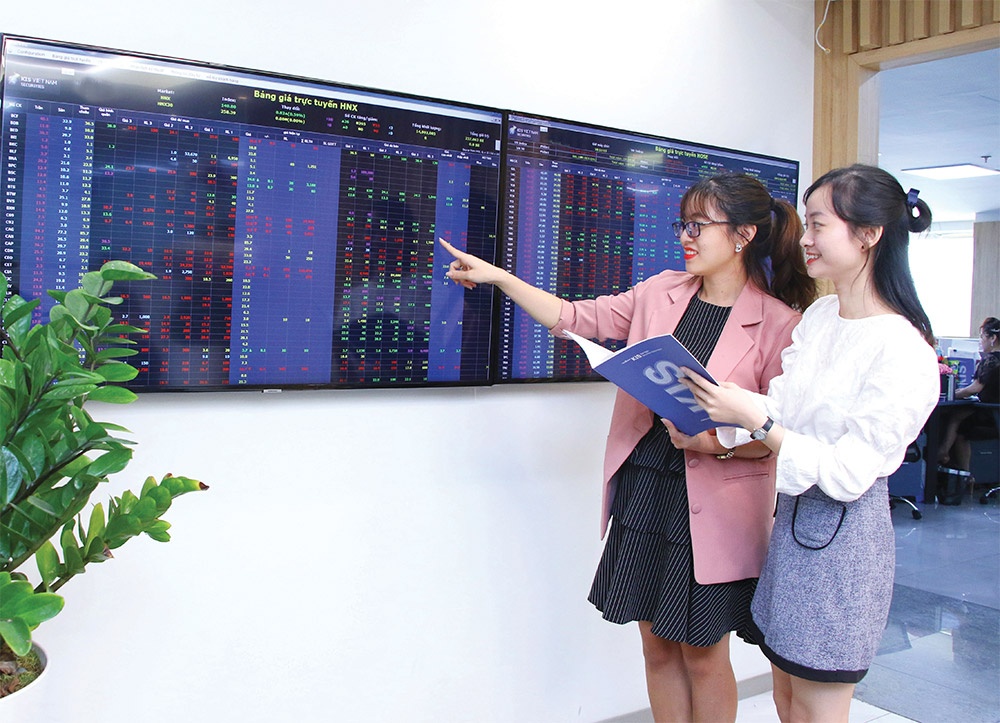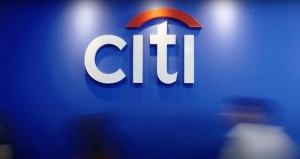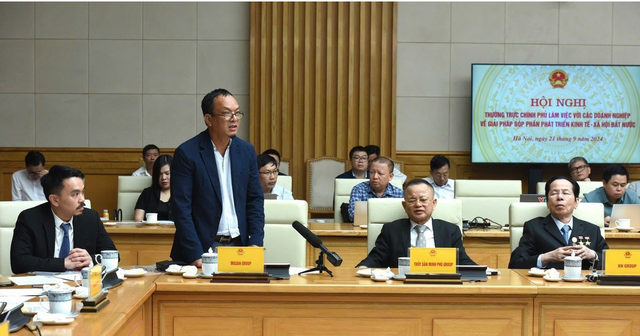Vietnam’s capital market set to diversify in 2025
The National Assembly at the end of November passed the revised Securities Law and eight accompanying financial laws, marking a significant milestone in advancing the development of the capital market.
Dr. Le Minh Nghia, chairman of the Vietnam Financial Consulting Association, emphasised that the capital market is a crucial component of the financial market, providing medium- and long-term capital to effectively mobilise and allocate resources, creating the essential material foundation for national economic growth.
“While moving towards an era of groundbreaking development, the capital market also serves as a driver of innovation and sustainable development, as well as enhancing Vietnam’s international standing. Despite facing unpredictable challenges, Vietnam’s capital market has gradually evolved towards greater balance, harmony, and sustainability, reducing its reliance on credit and increasing the proportion of capital mobilised through the stock market,” Nghia said.
However, alongside recent impressive progress, the Vietnamese capital market still faces numerous challenges in the near future.
“The corporate bond structure remains fragile, dominated by issuances from banks and real estate groups. The stock market is the most volatile in the region, falling short of both qualitative and quantitative targets. Over the past two years, the insurance market has recorded historically low growth rates. Meanwhile, in the banking credit market, rising bad debt pressures and the thinning buffers of some banks highlight underlying risks,” Nghia said.
Other issues, Nghia added, include the relatively small market size, lack of professionalism, and underdeveloped tech infrastructure.
 |
Methods to improve
Dr. Nguyen Tu Anh, director of the Centre for Economic Information, Analysis, and Forecasting under the Central Economic Commission, stressed that investment capital played an indispensable role in the economy. However, Vietnam’s investment level remains low, resulting in a weaker relationship between investment and growth.
“To achieve the net-zero target and address climate change, Vietnam will need up to $700 billion, with $350 billion expected from the private sector, around $250 billion from the public sector, and $100 billion from foreign capital. Over-reliance on credit capital could pose significant risks, particularly as the health of the banking sector shows concerning signals, such as increasing bad debt risks,” he said.
Additionally, per capita credit is significantly higher than GDP per capita. “This indicates a disconnect between credit growth and GDP growth. Could it be that the actual volume of credit capital flowing into the economy is not as substantial as the statistics suggest?” he added.
Phung Quoc Hien, former Vice Chairman of the National Assembly, acknowledged the capital market’s recovery after a difficult period.
“Recently, the stock market has grown in both scale and quality, with increased capitalisation and the number of trading accounts. Bond market issuance has grown while interest rates have declined. Next year, with the implementation of public projects such as the Long Thanh International Airport and expressway networks, public capital will be utilised extensively, leading to greater issuance of government bonds.”
According to Hien, however, public debt is currently below 40 per cent and budget revenues are also stable.
Nguyen Quang Thuan, chairman of Fiingroup, said, “Vietnam still lacks financial institutions and professional investment management funds, as most funds managing hundreds of billions of US dollars are entrusted funds when investing in Vietnam’s market. For exchange-traded funds, the effectiveness is measured not by profitability but by tracking error relative to the index.”
Thuan proposed several measures to enhance the quality of products in the stock market and suggested shifting towards risk-based asset allocation for insurance companies and credit institutions.
“In terms of policy proposals, many of the ideas might only be implementable in 5-20 years. Concrete proposals require detailed research on Vietnam’s legal framework, current conditions, international practices, and applicability in Vietnam,” he said.
For stock products, Thuan highlighted three key points: accelerating the reduction of state ownership in companies and industries where state control is unnecessary; encouraging companies on the Unlisted Public Company Market to move to listed exchanges; and improving the quality of information disclosure.
“For bonds, in addition to continuing to standardise and enhance information transparency, we need to diversify products, implement credit ratings for corporate bonds, establish a legal framework for bond underwriting companies, and develop soft infrastructure like yield curves and default histories,” Thuan said.
Mobilisation boost
Economist Dr. Le Xuan Nghia emphasised that the corporate bond market reflects the structure of Vietnam’s economy.
“Vietnam’s GDP growth is high, but largely driven by exports, a sector dominated by foreign-invested enterprises (FIEs). In contrast, domestic enterprises contribute only a small portion when it comes to exports. Additionally, GDP growth is also driven by investment, but similar to exports, investment in Vietnam largely comes from FIEs,” said Nghia.
Regarding the current state of the corporate bond market, Nghia stated that the market participants are mainly real estate and banking enterprises. However, banks’ capital raising through the corporate bond channel is primarily aimed at increasing tier-2 capital, which in turn boosts mobilisation and lending.
“If the corporate bond market continues to depend only on real estate, it will still face difficulties next year. This is an issue we must be cautious about. To address the current challenges in the corporate bond market, the first step is to resolve large real estate projects that are stalled in various provinces. Only then will the real estate market recover, pulling the corporate bond market upward,” added Nghia.
Nguyen Khac Hai, managing director of Legal and Compliance at SSI Securities Corporation, assessed that the changes in the revised Securities Law related to the corporate bond market will generally help the market develop in a more rigorous direction.
“Tougher conditions for corporate bonds in the revised Securities Law will help ease investor sentiment in this market. These changes will open the door for investors to return to the market, stimulating the inherent dynamism of this capital raising channel,” said Hai.
Dr. Ta Thanh Binh, CEO of the Vietnam Securities Depository and Clearing Corporation, stated that with institutional reforms, the market will receive a large influx of capital in the coming year. However, this also raises concerns about pressure on the system.
“In the event of an upgrade to emerging market status, Vietnam’s stock market is expected to receive a large influx of investment into the emerging market sector. This could bring substantial trading volumes with more frequent and continuous transactions, potentially putting significant pressure on the trading system and the clearing and settlement system. Additionally, issues related to foreign exchange conversion will need to be assessed to determine if they can handle such large volumes,” said Binh.
| Nguyen Thuy Hanh, CEO and head, Banking and Coverage Standard Chartered Vietnam
For 2025, we forecast strong GDP growth of 6.7 per cent, with growth easing from 7.5 per cent on-year in H1 to 6.1 per cent in H2. We expect increased business activity in 2025 and beyond, with foreign investment supporting growth. Our 2025 forecast is below the authorities’ target, as the government will push for 7-7.5 per cent GDP growth. The USD may face a period of weakness early in 2025 due to continued Fed rate cuts and uncertainty about policy implementation. However, the USD is anticipated to strengthen in the second half of 2025 as fiscal and tariff measures are clarified and implemented. Persistent inflation and structural factors, such as productivity, will influence foreign exchange market dynamics, with rate differentials remaining a key driver. In the long term, the sustainability of macro-stimulus measures will influence USD strength. Foreign and domestic investors might prefer inflation-protected assets if inflation uncertainty persists. Vietnam is well-positioned to capture an increased share of global production and exports, as it is well integrated with global trade after signing multiple free trade agreements. Vietnam’s balance of payments is driven largely by goods trade and overseas investment; external-sector performance has stayed relatively solid. An upward reversal in commodity prices would pose a risk to the external outlook. Fed rate cuts, which should lead to a softer-USD bias over the next few quarters, will result in exchange rate of USD/VND 25,450 by Q2. We expect the State Bank of Vietnam (SBV) to hike rates by 50 basis points in Q2. The government’s desire for stronger economic growth may support low interest rates for now. Inflation could rise again starting in Q2; as such, we expect rate normalisation. Fed moves will also be key to the SBV’s policy decisions. Lower USD rates may help to reduce capital outflows, while a sustained trade surplus and strong tourism should support the VND. However, low import cover remains a challenge. Vietnam must prioritise clarity in its policy outlook and political transition, which would help boost investor confidence. To foster sustainable medium-term growth, Vietnam will need to step up its preparedness for natural disasters, diversify its economy away from manufacturing and diversify its foreign investment sources away from Asia. Diversifying investment sources and enhancing the business environment will be critical for Vietnam to realise its potential and accelerate economic development in 2025. |
 | Citi closes out the year as top equity house in Asia Citigroup Inc. ended 2023 as the top equity house in Asia amidst a challenging capital market environment affected by rising rates, a deteriorating economic outlook, and continued geopolitical tensions. |
 | Vietnam maturing into respected capital player Dragon Capital is heavily investing in Vietnam and has been ever-present in the country for three decades. In an exclusive interview, chairman Dominic Scriven shared insights with VIR’s Le Luu into the evolving Vietnamese capital market. |
 | Citi appoints new head of Financing for Investment Banking Citi has announced that Achintya Mangla will become head of Financing for Investment Banking from September 4. |
 | Masan calls for IPO reforms to boost Vietnam’s capital market Masan Group has urged the government to streamline procedures for initial public offerings (IPOs) and revise listing requirements to align with international standards, arguing that the current system hampers Vietnam's capital market potential and restricts growth for businesses seeking flexible funding. |
What the stars mean:
★ Poor ★ ★ Promising ★★★ Good ★★★★ Very good ★★★★★ Exceptional
Related Contents
Latest News
More News
- Private capital funds as cornerstone of IFC plans (February 20, 2026 | 14:38)
- Priorities for building credibility and momentum within Vietnamese IFCs (February 20, 2026 | 14:29)
- How Hong Kong can bridge critical financial centre gaps (February 20, 2026 | 14:22)
- All global experiences useful for Vietnam’s international financial hub (February 20, 2026 | 14:16)
- Raised ties reaffirm strategic trust (February 20, 2026 | 14:06)
- Sustained growth can translate into income gains (February 19, 2026 | 18:55)
- The vision to maintain a stable monetary policy (February 19, 2026 | 08:50)
- Banking sector faces data governance hurdles in AI transition (February 19, 2026 | 08:00)
- AI leading to shift in banking roles (February 18, 2026 | 19:54)
- Digital banking enters season of transformation (February 16, 2026 | 09:00)


 Tag:
Tag:



















 Mobile Version
Mobile Version